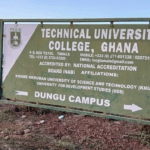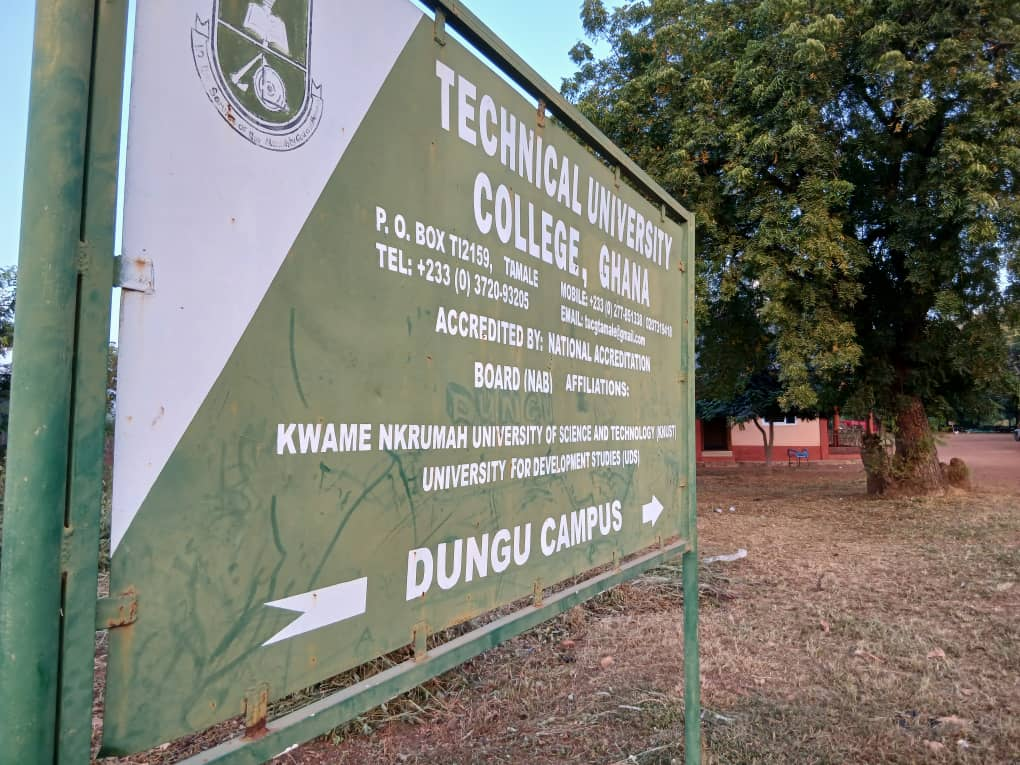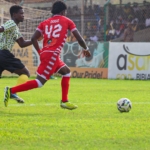
The long-running legal dispute between Technical University College and the Anbariya Islamic Institute is entering its final phase, with the College submitting its written arguments ahead of the case’s expected conclusion in December.
The submission, filed earlier this month, outlines the University College’s arguments, evidence, and legal position. This marks an important step toward resolving a case that has attracted considerable attention from educational and Islamic communities in the Northern Region.
According to JoyNews sources, the court directed both parties to file written arguments after years of hearings, counterclaims, and procedural reviews. The dispute revolves around land ownership and administrative authority, with implications for academic operations, community relations, and future development projects involving both institutions.
Officials of Technical University College expressed confidence in their filing, describing it as a comprehensive and factual representation of their position.
Plaintiff failed to prove its case
The defendant’s lawyer argued that the plaintiff’s evidence was unconvincing, inconsistent, and legally insufficient. He stated that the plaintiff failed to provide credible documentation to support claims such as founding Technical University College Ghana, owning the land in question, or maintaining contractual relationships with the Islamic Development Bank or the Ghana Tertiary Education Commission.
“More significantly, the site inspection clearly shows that the plaintiff’s claim to the land is spurious,” the lawyer added.
He further argued that the 13.94 acres on which the Vocational Training Centre is located falls within the 189 acres claimed by the defendant. The plaintiff, he said, could not establish any connection between its alleged 71 or 84 acres of land and the 13.94-acre parcel.
The site inspection, he said, confirmed the defendant’s claim, as the boundary pillars and vacant portions beyond the 13.94 acres supported the defendant’s ownership of the 189-acre tract.

Reliefs sought by the defendant
In light of these arguments, the defendant is requesting:
A dismissal of the plaintiff’s claims as frivolous, vexatious, and unsubstantiated.
A declaration that Technical University College Ghana is a duly registered and autonomous tertiary institution, independent of the plaintiff.
A declaration that the plaintiff has not proven ownership of the land occupied by the University College.
A declaration that the defendant, Dr. Osman Alhassan, has not committed trespass or any unlawful act.
An award of costs for inconvenience, expenses, and prolonged litigation.
Background
The plaintiff, Anbariya Islamic Institute, initiated the current legal action in 2010 against Dr. Osman Alhassan, seeking declarations and orders concerning the ownership, management, and control of Technical University College Ghana (TUCG). The defendant denies these claims and has filed a counterclaim.
Anbariya Islamic Institute was established in 1983 as a Company Limited by Guarantee by the late Sheikh Yusuf Sualihu Ajura (Afa Ajura) to promote Sunni Islam and Islamic education. One of his close supporters was Professor Abubakari Alhassan, who designed and built the current Afa Ajura Mosque and aided many of Afa Ajura’s initiatives.
As PNDC Secretary for Works and Housing, Professor Alhassan strengthened ties with Muslim embassies, securing educational support for Anbariya. He persuaded the Saudi Embassy to establish a Vocational Training Centre for Muslim boys and girls, a project that proceeded smoothly until Afa Ajura’s death in 2004.
He was succeeded by Sheikh Saeed Abubakari Zakaria, who was then serving as an Imam in Canada. Under the new leadership, Anbariya reportedly faced controversies and legal disputes, prompting interventions from the courts, traditional authorities, and the government.
Facts of the case
In 1989, Professor Abubakari Alhassan acquired land at Vittin to support education in Northern Ghana. It was initially donated to a Ghana/Iran Education Complex, but the project did not materialize for political reasons.
In 1991, Afa Ajura sought funding from the Islamic Development Bank (IDB) for a vocational school. Since Anbariya owned only smaller parcels of land at Nyashegu and Sakasaka, Professor Alhassan, in consultation with stakeholders, ceded 13.94 acres from his 189-acre acquisition to help Anbariya qualify for the grant.
The IDB approved the grant in 1996, and construction of the vocational school was completed in 1998. It was formally handed over to Afa Ajura in November 2003.
In 2002, Professor Alhassan sought to establish a tertiary institution—later named Anbariya Technical University College—and obtained temporary accreditation. A separate bank account was created for the institution, with Halewesu, Afa Ajura’s eldest son, as a signatory. Anbariya did not subscribe to the University’s regulations, and neither Halewesu nor Professor Alhassan was a member of Anbariya under the new leadership.
The University College used the Vocational Training Centre buildings until 2007, when Anbariya’s new leadership demanded that it vacate the premises. Although Professor Alhassan complied, Anbariya later claimed ownership of the University College and reported him to traditional authorities.
Anbariya sued in 2010 but lost. The matter then moved into traditional and political arenas, prompting the Dagbon Regent to request a government-backed committee to investigate. That committee was later accused of overstepping its mandate and acting against the University’s management.
Strengthened by the committee’s findings, Anbariya initiated the present suit—not against the University College but against Dr. Osman Alhassan, the brother of Professor Alhassan and an employee of the institution.
The court is expected to review all submissions and deliver its final judgment on December 16, 2025.

